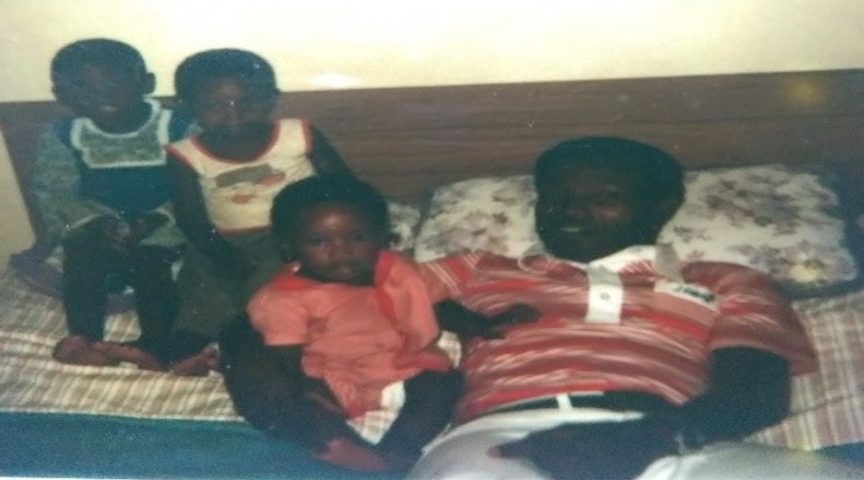Africa’s Undisputed Goal King (Part Seven) – The Record Holder

Africa’s Undisputed Goal King (Part Six) – The Wilderness and Return
October 16, 2020
Africa’s Undisputed Goal King (Part Eight) – Astonishing
October 16, 2020Africa’s Undisputed Goal King (Part Seven) – The Record Holder

By Satish Sekar © Satish Sekar (May 5th 2020)
The African Icon
Zambian great, Godfrey Chitalu, set records for fun. In 1968 he broke Pelé’s single season and calendar year goal scoring records. Over the previous 41 years, it had been difficult to break since Everton and England great, Dixie Dean scored 63 in 1927 – his total lasted just under two decades – interrupted by World War II.
Szentlőrinci Atlétikai Club Barátság and Hungary’s Ferenc Deák netted 66 in 1946 his highest in a remarkable war interrupted career that ended with Deák having scored well over 500 top-flight goals. Two years before Dean set his record an American, Archie Stark, set a single-season mark for Bethlehem Steel in the 1924-25 season. He scored 67 goals – an important figure, as it meant that neither Dean nor Déak ever held the single-season record
Twelve years later Pelé, fresh from making World Cup history, beat Deák’s record. Pelé’s total, 75, lasted a decade, but even that is controversial as the league total was from the Campeonato Paulista – there was no Brasilian national league for the Santos legend to excel in.
Double Standards
Closer examination shows that Pelé’s record, which possibly deserves a query, was broken by Chitalu by just 6 goals. Déak and Dean never held the record as Stark had set a higher total than either in 1925 – astonishing that nobody questioned this, although Stark’s figures may be for the season 1924-25 – and that the person who clearly broke Stark’s mark was actually Chitalu, the only person whose tallies are questioned.
But Chitalu’s record of 81 fell just four years later. It was the only time two players beat the old record at the same time.
West German great Gerd Müller was fêted for his achievement, scoring 85 in 1972, and was credited with holding it for 40 years until Lionel Messi scored 91. But Müller never actually held the record, and Messi’s ‘record’ was actually a distant second to the actual record holder.
In fact, Chitalu destroyed his own record, scoring 26 more than his 1968 tally, but in the 1972 season, not calendar year. Unlike in Europe, Zambia’s season started and finished within the calendar year. For the first time the season and calendar year records were held by the same player, but with different totals, or rather they should have been.

Truths and Statistics
The statistics contained a gross unfairness. The anomaly about the Zambian season resulted in a strange unfairness. Chitalu’s season record was put up against the calendar years of both Müller and Messi. He only had 309 days compared to their 366, but he still beat their totals convincingly.
Chitalu’s tally should be higher. His calendar year tally is 116 and included two African Champions Clubs records.
There really should be no argument – both the season and calendar year records never belonged to Müller or Messi. They belong to Chitalu, and that in no way diminishes the greatness of Müller or Messi. They were and remain among the all-time greats of the beautiful game.
International Championship Fixtures
It was a different story on the international stage. West Germany, and Müller in particular would rewrite the record books. Chitalu would just keep his tally ticking over, although his international goals were scored during the Zambian Super League season.
Zambia had failed to qualify for the 1972 Africa Cup of Nations. Zaire had eliminated them in the second round of qualification the previous year, after Zambia had easily eliminated Tanzania, so Chitalu’s year comprised the Zambian Super League, and the missing African Cup of Champions Clubs goals, and two World Cup qualifiers, which the KK11 won 6-1 on aggregate and other competitions and matches for club or area in Zambia, which included some friendly matches. Chitalu bagged a brace in Ndola after a 0-0 draw in Maseru. If Zambia had qualified, Chitalu would have missed the start of the Zambian season, or it would have been delayed. Müller’s European Championship heroics occurred between the 1971-72 and 1972-73 Bundesliga seasons.
The brace against Lesotho were the only international goals that Chitalu scored in his phenomenal year, but they were also the only international matches he played as well.
Meanwhile, no sooner had Bayern München (Munich) won the Bundesliga title in 1972 than their star striker joined the Mannschaft (national team) for the European Championship of 1972 – still only a four-team championship. Müller was in imperious form. Before the finals he had dominated the qualification process too with seven out of West Germany’s 13 to reach the final four.
His season tally of 40 for the 1971-72 Bundesliga season was the highest of his career, and he scored four in just two matches to help West Germany win their first European Championship with braces in the 2-1 semi-final victory against Belgium and 3-0 win in the final against the now defunct Union of Soviet Socialist Republics (USSR).
Comparisons
Müller had had a fantastic and very, successful 1972. By the end of the decade he had cemented his reputation as one of the greatest players Germany had ever produced. He was a world great – there’s no credible dispute over that, but Chitalu’s statistics more than bear comparison and that does not detract from Müller’s fantastic achievements.
But while their individual statistics are fantastic, there can be no comparison between Kabwe Warriors and Bayern München (Munich) and Zambia and West Germany. The Europeans win such comparisons hands down each and every time.
But as far as comparisons can be made between Chitalu and Müller, the Zambian great has earned the right to feature in such conversations on merit. In fact, excluding Chitalu does Müller no favours.

